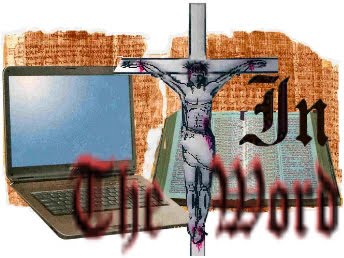While Paul is addressing his letters to definite localities,
these. specific localities, are numerous house churches that he writes
to. This fact is demonstrated in the closing of his letters, in many
cases.
One major problem, over being numerous churches, presents itself in this,letter, and that was the leadership problem.
One major problem, over being numerous churches, presents itself in this,letter, and that was the leadership problem.
1 Corinthians
3.:1-4:1a
The context of
this particular portion of scripture is the division that was going on within
the church body. One group is following Peter, another group is following
Apollos, another group is following Paul, and because of this, Paul is calling
them children or babes in Christ even infants. They are not capable of
understanding good teaching of Doctrine and deep things of God.
To answer this,
the Apostle Paul straightens them out as to who he is and who Apollos is and
who Peter is. They were only men, "born-again"men, called by God,
gifted by God, and sent by God. They, including Paul etc., were all
sinners saved and gifted by the unmerited grace of God. It is God who is the
master, that converts the sinner and causes spiritual growth--not the work of
man. It's amazing how all this is missed even today.
The following
passage starting in 1 Cor. 3:10-15, are directly related to this. I am going to
skip over a passage here that is very important this is the 16th verse Thru the
23rd verse--this will be taken up in another post.
Therefore, having
said this, having set the context, the Apostle Paul makes this statement:
"Let a man regard Us in this manner, as Servants of Christ, and
stewards of the mysteries of God. ( 1Corinthians 4:1). Paul deliberately
uses certain Greek words to prove his point. So the Greek words are
important here, and their specific detailed meanings shows how much our
positions were significantly different. When the Apostle Paul uses the phrase,
"Servants of Christ",, he relates it to all believers in Christ,
including himself, Paul.
The translators
use of the word, "servants," is pretty tame. The Greek word for slave
or servant here is different than what Paul normally uses ( like Rom. 1:1). This
slave was a slave under-rower chained to an oar, who, laboring with other
slaves, helped row with a large oar on a slave ship. Obviously everything,
certainly the moving of the large oar, had to be done in unison.
The separation between this slave and the master was
unbridgeable.The master of the slaves walked the deck above all of them.
A considerable degrees of separation separated the slave from the
Master. The separation that exists between the believer and Jesus Christ, who
is our master, is just as considerable, although our access and communication to
our master, Jesus Christ, is both open and instant-- just a prayer away.
This analogy illustrates another church parallel. Obviously, this
slave handling an oar had to work in unison with the other rowers, including
not only on his bench, but the entire ship. ( Incidentally, I've read where
these slave ships were easily identifiable by their smell. Obviously, these
Under-rower slaves were not granted restroom breaks.
Paul changes his
analogy with the next Greek word, which is translated, "stewards".
When he refers to "us" in
reference to "stewards", he wasn't thinking of any Tom, Dick, or Harry.
Weymouth translates the passage:
|
As for us Apostles, let any one take this view
of us--we are Christ's officers, and stewards of God's secret truths.
|
||
|
outwV hmaV logizesqw
anqrwpoV wV uphretaV cristou kai oikonomouV musthriwn qeou
This being so, it follows that fidelity is
what is required in stewards.
|
wde loipon zhteitai en
toiV oikonomoiV ina pistoV tiV eureqh
AT ROBERTSON COMMENTS:
(uphretaß Cristou).
Paul and all ministers (diakonouß)
of the New Covenant (1 Corinthians 3:5) are under-rowers,
subordinate rowers of Christ, only here in Paul's Epistles, though in the
Gospels (Luke 4:20 the
attendant in the synagogue) and the Acts (Acts 13:5) of John Mark. The so (outwß) gathers up the preceding argument (1 Corinthians 3:5-23) and applies it
directly by the as (wß)
that follows. Stewards of the mysteries of God (oikonomouß
musthriwn qeou).
The steward or house manager (oikoß,
house, nemw,
to manage, old word) was a slave (douloß)
under his lord (kurioß,
Luke 12:42), but a
master (Luke 16:1) over
the other slaves in the house (menservants paidaß,
maidservants paidiskaß
Luke 12:45), an overseer
(epitropoß) over the rest (Matthew 20:8). Hence the
under-rower (uphrethß)
of Christ has a position of great dignity as steward (oikonomoß) of the mysteries of God. Jesus had expressly
explained that the mysteries of the kingdom were open to the disciples (Matthew 13:11). They were
entrusted with the knowledge of some of God's secrets though the disciples were
not such apt pupils as they claimed to be (Matthew 13:51; Matthew 16:8-12). As stewards Paul and other
ministers are entrusted with the mysteries (see on "1Co 2:7" for this
word) of God and are expected to teach them. "The church is the oikoß (1 Timothy 3:15), God the oikodespothß (Matthew
13:52), the members the oikeioi
(Galatians 6:10; Ephesians 2:19)"
(Lightfoot). Paul had a vivid sense of the dignity of this stewardship (oikonomia) of God given to him (Colossians 1:25; Ephesians 1:10). The ministry is more than a mere
profession or trade. It is a calling from God for stewardship.
This other Greek word, "stewards" would also be a slave, (
In the world at this time 50% of the population were slaves, becoming a slave
at birth or as a result of War)
